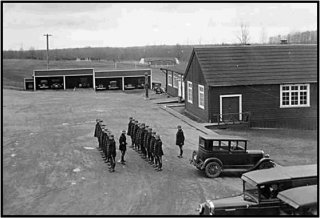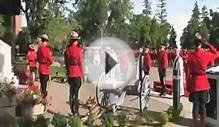
 The RCMP was first established in the Maritimes following the historic re-organization of what was until then known as the Royal North West Mounted Police. February 1, 1920 marked the transition for the organization from a more regional police presence to a truly national institution as the newly designated Royal Canadian Mounted Police (RCMP) absorbed the existing Dominion Police and became responsible for federal law enforcement across the country.
The RCMP was first established in the Maritimes following the historic re-organization of what was until then known as the Royal North West Mounted Police. February 1, 1920 marked the transition for the organization from a more regional police presence to a truly national institution as the newly designated Royal Canadian Mounted Police (RCMP) absorbed the existing Dominion Police and became responsible for federal law enforcement across the country.
In the 12 years that followed, the Maritime Provinces District was responsible solely for federal policing in the region. Its compliment during this period never exceeded 37 men, 25 of whom were tasked with the policing of military instalments in Halifax. With only 12 remaining members to carry out investigational work in three provinces, the majority of the RCMP's work centred around enforcing customs, excise, fisheries and immigration laws. A number of high profile cases, particularly in relation to the region's famous bootleggers, demonstrated the RCMP was a capable police service.
In response to economic pressure caused by the Depression, by the 1930s many provinces were looking for ways to cut costs. April 1, 1932 saw the realization of RCMP contract policing in Nova Scotia. Nearly 90 members of the former Nova Scotia Police and 35 of the Preventive Service (former Department of National Revenue force) swore the RCMP oath to "faithfully, diligently and impartially execute and perform [their] duties, " on that day.
In 1933, Nova Scotia was christened H Division. Given the history of the Force in the province and its efforts to prevent the smuggling of hard liquor, the Division was soon nicknamed "Hard Stuff H" and its members would prove themselves worthy of the moniker.
As Nova Scotia's primary provincial police force over the ensuing 75+ years, the RCMP presence in Nova Scotia has continued to expand. Today H Division has 55 detachments and worksites across the province. The state-of-the-art headquarters opened in Dartmouth in 2013 and serves as a hub of operations so that personnel can be deployed anywhere in the province to support an unfolding event or incident.
INTERESTING VIDEO












